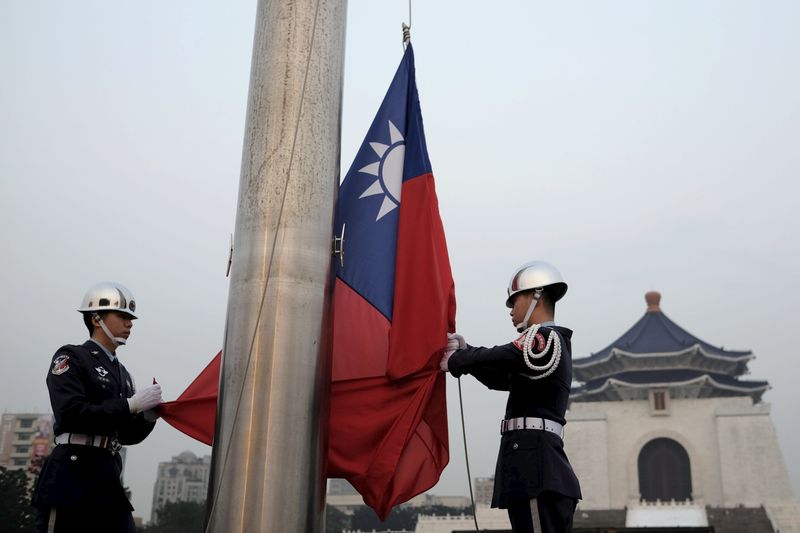BEIJING (Reuters) - China on Thursday expressed firm opposition to a decision by the U.S. House of Representatives to pass two pieces of pro-Taiwan legislation, but Taipei welcomed them as helping to strengthen ties with Washington.
China considers the self-ruled island of Taiwan a breakaway province and has never renounced the use of force to bring it back under mainland control, but Taiwan has shown no interest in being ruled by Beijing.
The Foreign Affairs Committee passed two bills on Tuesday to "strengthen the critical U.S.-Taiwan partnership", the Taiwan Travel Act and a bill to support Taiwan's inclusion in the World Health Organization (WHO), according to an online statement.
The travel bill aims to encourage visits between the United States and Taiwan, while the second bill aims to counter "harmful and unacceptable" efforts to undermine Taiwan's inclusion in the WHO, it added.
In Beijing, foreign ministry spokesman Lu Kang said China firmly opposed the two bills, which constitute a "severe violation" of the "one China" principle and an interference in China's internal affairs.
"China urges the United States to scrupulously abide by the one China principle, cautiously handle the Taiwan issue, not have any official contact with Taiwan and not give any wrong signals to Taiwan independence forces," he told a regular briefing.
Taiwan was not surprised by the reaction of mainland China and was glad to see the travel bill pass, the island's foreign ministry spokesman, Andrew H.C. Lee, said, adding that such a bill helps to strengthen two-way ties.
"We won't stop making efforts because of any intervention or interruption by outside forces," he added.
When still U.S. president-elect in December 2016, Donald Trump angered China by taking a congratulatory phone call from Taiwan's president Tsai Ing-wen and by questioning the United States' long-held "one China" policy.
Trump later re-affirmed U.S. commitment to the policy in a telephone call with Chinese president Xi Jinping.
